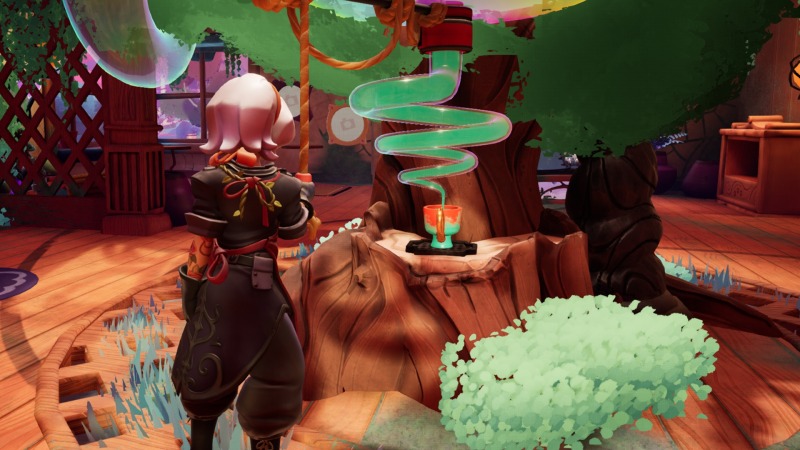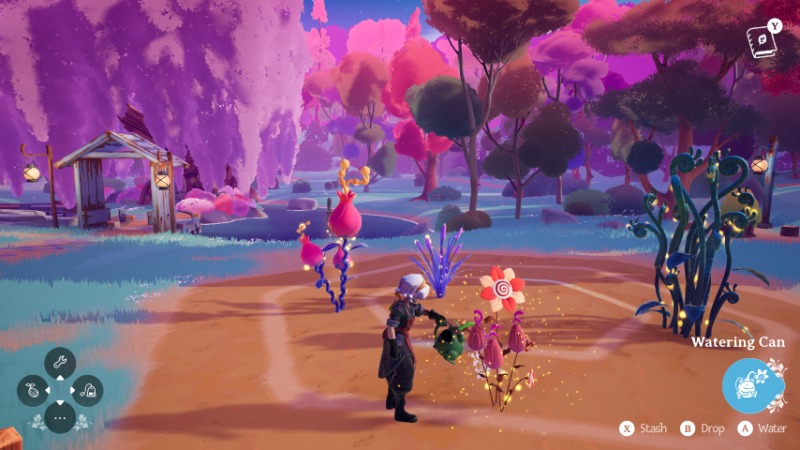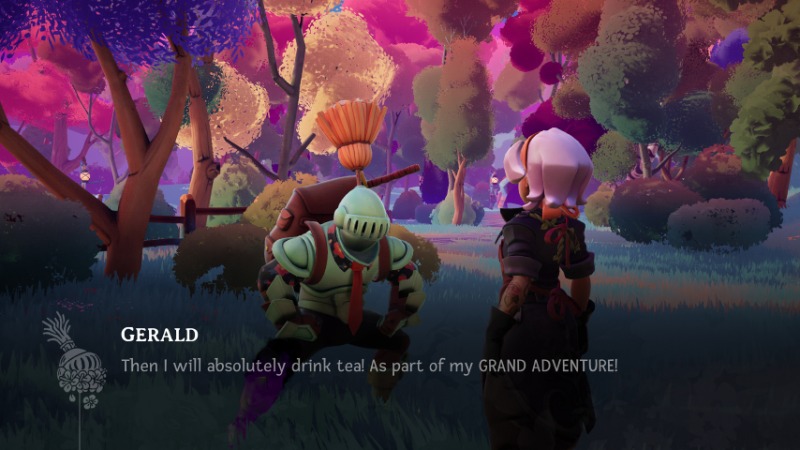Wanderstop Brews Up Thoughful Ruminations On Cozy Games And Burnout

The announcement of Wanderstop brought plenty of speculation. While its trailers seemed to indicate it was a cozy farming game, many assumed that there was more at play here; after all, it was being directed by Davey Wreden, the creator of two of the most meta games ever made, The Stanley Parable and The Beginner’s Guide, and co-written by Karla Zimonja, who co-directed Gone Home. Having played the latest from Wreden, Zimonja, and the rest of Ivy Road studio, I can confirm without spoiling anything specific that while it doesn’t defy expectations in an in-your-face postmodern kind of way like The Stanley Parable, it does come with more than a few subtle subversions. The result is a fascinating tea-serving sim that narratively and mechanically explores burnout, anxiety, and the cost of “being the best” as it differentiates itself from many of its cozy game peers. And while admittedly, its shopkeeping elements wear quite thin by the end, that doesn’t stop this from being a thought-provoking journey.
The story follows a professional fighter named Alta, the best swordmaster of her generation who reigned undefeated in the arena for years thanks to her unmatched skill and obsessive perfectionism. But then, after winning hundreds of matches in a row, she suddenly starts to lose. As a result, she sets out on a quest to “fix” herself by getting training from the legendary combatant, Master Winters, but gets lost in a forest that seems to have a mind of its own. Thankfully, she’s saved by Boro, a gentle giant who happens to run a teashop, Wanderstop, in the middle of these mysterious woods. While Alta initially rejects his proposal that she should rest and relax until getting her strength back, she finds that she’s physically unable to leave, repeatedly collapsing as she tries to resume her trip. Eventually, she begrudgingly accepts Boro’s offer to tend to this teashop until she finds a way to leave.
As this setup would imply, this game is about making drinks for people, not too out of step with the likes of VA-11 Hall-A or Coffee Talk, but combined with the aesthetics of cozy games and farming/social sims. Here, making tea is a fairly involved process: you have to grow fruit in your garden for flavoring, collect and dry tea leaves from the woods, and then use a whimsical brewing contraption that looks right from a Dr. Seuss book to heat water and mix everything. On top of this, your customers don’t make it easy for you, offering only vague hints of what they want instead of picking from a menu, requiring you to sift through a codex of ingredients to craft the ideal concoction. Along the way, you can also tidy up the clearing around the shop by sweeping up leaves, trimming weeds, tending to the adorable Pufflings, and performing other chores.

While this may sound relatively familiar to other life sims, it stands out from most other experiences in this style because it’s even more chill than many of its peers. Despite their aesthetics, if your brain is wired a certain way, many “cozy” games can end up being weirdly stressful, whether it’s attempting to craft the optimal town layout in Animal Crossing: New Horizons, min-maxing farming output in Stardew Valley, or going down the dark path of collecting the rarest critters in Viva Piñata.
By contrast, Wanderstop goes out of its way to discourage this kind of compulsive behavior. There aren’t any numbers to make go up. For the most part, you’re not racing against an internal clock, and customers will simply hang out indefinitely until you get to them. Even if you get their order wrong, you can try again as many times as you want. There’s no in-game currency and little incentive to perfect your garden or anything else, as this clearing periodically resets as the story progresses. Aside from serving your guests, everything else you do here is for your own intrinsic pleasure, making for a largely relaxing time that dovetails nicely with this story’s overarching themes. Basically, in its absence of fake currencies and other barometers for “success,” it effectively communicates the same message to both the player and Alta: hey, just chill out for a second.
As for our heroine, one of Wanderstop’s big change-ups compared to many other entries in this space is that you’re not playing as some happy-go-lucky protagonist, like a new homeowner moving to a town full of funky animals, but a deeply troubled person who doesn’t want to be stuck here. She’d much rather be in an action game than one about cultivating flora and making tea. From the jump, Alta’s headspace is conveyed via a series of evocative illustrations that capture her crushing pursuit of excellence, as every spare moment of her life is spent sharpening her sword-fighting abilities. Wreden and Zimonja capture the dark side of her all-consuming drive, illustrating how this obsessiveness eats at her as she grapples with why she’s hit a dead end. We eventually get a more comprehensive understanding of her past, setting the stage for a convincingly portrayed character arc.
-

-

-

-

-

-

-

-

-

-

-

-

-

-

-

-

-

-

-

-

-

-

-

-

-

-

-

-

-

-

-

-

-

-

-

-

-

-

-

-









































